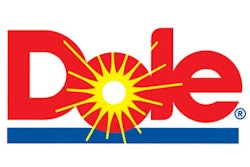NEW YORK (AP) — Wal-Mart Stores Inc. cut its annual profit and revenue outlook Thursday as the world's largest retailer expects a tough economy at home and abroad to continue to squeeze its low-income shoppers through the rest of the year.
Wal-Mart also reported second-quarter results that missed Wall Street estimates. The company's stock fell nearly 2 percent.
The spring and early summer showed some improvement from the first quarter, but overall, it was a tough first half of the year for the discounter.
Wal-Mart's sober assessment of consumer spending adds to worries in earnings from Macy's Inc. and Kohl's Corp. Both lowered their expectations for the year after reporting disappointing results.
Wal-Mart is considered an economic bellwether because the retailer accounts for nearly 10 percent of nonautomotive retail spending in the U.S. The latest performance indicates that many American households continue to struggle in a yo-yo economic recovery.
While jobs are easier to get and the turnaround in the housing market is gaining momentum, the improvements have not been enough to sustain spending for most Americans, who are juggling tepid wage gains and higher costs of living.
On top of that, Wal-Mart said recent tax changes have further put pressure on its shoppers. Americans are dealing with a 2 percentage-point increase in the federal Social Security taxes taken out of their payroll checks since Jan. 1. That means that take-home pay for a household earning $50,000 a year has been sliced by $1,000.
"The retail environment remains challenging in the U.S. and our international markets, as customers are cautious in their spending," Wal-Mart Chief Financial Officer Charles Holley said in a statement. He noted a "reluctance" among its customers to spend on discretionary items like flat-screen TVs.
During a call with the media, Holley said the top three concerns among its customers are jobs, food costs and gas and energy prices.
The Bentonville, Arkansas-based retailer said its second-quarter profit rose 1.3 percent to $4.07 billion, or $1.24 per share, for the three months ended July 31. That compares with $4.02 billion, or $1.18 per share, a year earlier.
Net sales rose 2.4 percent to $116.2 billion. That figure excludes membership fees from its Sam's Club division.
Analysts expected earnings of $1.25 per share on revenue of $118.09 billion.
Revenue at stores open at least a year at Wal-Mart's U.S. namesake business fell 0.3 percent. That's considered an important measure of a retailer's performance. Analysts were expecting a 0.7 percent gain. The decline marks the second straight quarter of declines for the stores after six straight quarters of increases. U.S. Wal-Mart stores account for 59 percent of the company's total sales.
Adding in Sam's Club and international stores, revenue at stores open at least a year was flat compared with a year ago. It rose 1.7 percent at Sam's Club.
The U.S. decline was less steep than in the first quarter, when Wal-Mart's U.S. stores had a 1.4 percent decline in revenue at stores opened at least a year.
Overall, total sales increased only modestly for Wal-Mart's U.S. business, Sam's Club and its international division for the latest quarter. Wal-Mart's U.S. division posted a total sales increase of 2.1 percent to $68.73 billion, while Sam's Club saw a 2.6 percent increase to $14.53 billion.
At Wal-Mart's U.S. stores, clothing did well as the discounter has refocused its offering on basics like socks and no-frills jeans that its shoppers need. During a call with reporters, Holley said it was too early to discuss how the back-to-school business is faring. But he said he's encouraged by early sales of children's clothes.
Still, sporting goods and entertainment products like toys saw declines in the quarter. Cooler weather earlier in the spring hurt merchandise like water toys and pools. And the lack of innovation in the electronics area limited business. But Holley told reporters that shoppers are hesitant to spend on items they really don't need.
In the grocery aisles, Wal-Mart saw a slight decline in sales. A big factor was lower-than- expected inflation, or even deflation in certain cases such as snacks and frozen food. But as Wal-Mart saw in the first quarter, shoppers traded down to cheaper products to save money.
The company's international business had an increase of 2.9 percent to $32.96 billion.
In a prerecorded conference call, Doug McMillon, president and CEO of Wal-Mart's international division said that during the first half of the year, consumers in both developed and emerging markets curbed spending. "We believe these trends will persist through the remainder of the year," he said.
A bribery scandal also threatens to slow its business overseas. Allegations first surfaced in April 2012 that Wal-Mart failed to notify law enforcement that company officials authorized millions of dollars in bribes in Mexico to speed up getting building permits and gain other favors. Wal-Mart has been working with government officials in the U.S. and Mexico on that investigation.
Wal-Mart has been investing in fortifying controls overseas and has hired new executives to comply with laws against foreign bribes but also strengthen controls in other areas like food safety.
Wal-Mart said it now expects total sales to rise 2 to 3 percent for the full year. The company's previous forecast was for growth of 5 percent to 6 percent.
The company also took a dime per share off its full-year profit outlook, cutting it to between $5.10 and $5.30 per share, from between $5.20 and $5.40 per share.
Analysts were expecting $5.29 per share.
Wal-Mart's stock fell nearly 2 percent, or $1.47, to $74.93 in premarket trading.


















